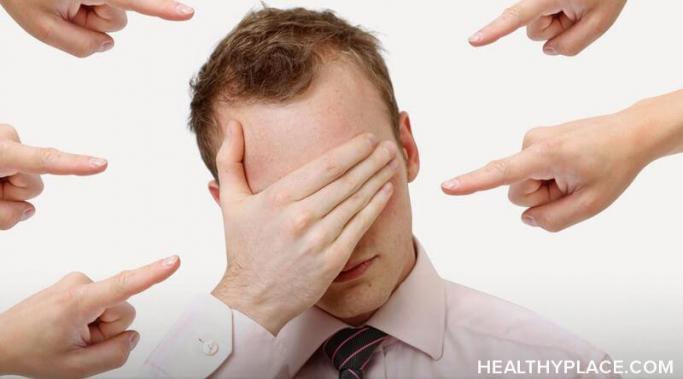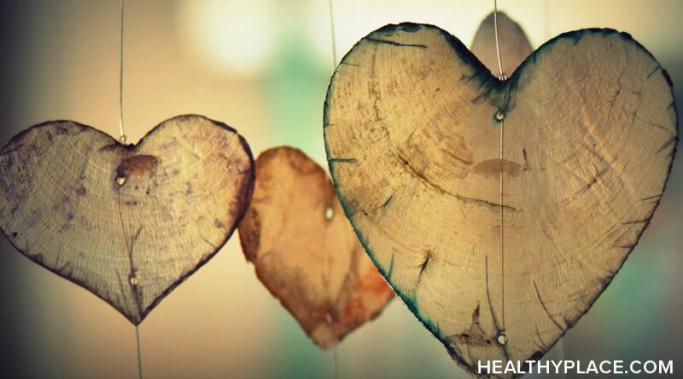Blogs
One of the greatest challenges of complex posttraumatic stress disorder (PTSD) is quieting the inner critic. The critic develops as a result of a neglectful or abusive home in which caregivers do not provide a sense of a safe attachment in the child. Many children in this situation will enact perfectionist mode, believing if they could just be good enough or do things well enough, they can prove their worth and earn parental love. However, over time, as perfectionism fails to create the bond the child so desperately needs, anxiety and sadness build in the child.
What is self-worth? How does self-worth show in our actions? I recently met two students who had both received a B+ on a test. While the first was practically jumping with joy, the second was more subdued. When I asked the latter if she felt the same excitement as her peer, she responded, "I can't stop thinking about how many questions I missed. I'm an idiot." Though both earned the same grade, one saw it as a sign of her worth, while the other saw it as a sign of worthlessness. This led me to think about, how do we define self-worth? What is it that makes one person believe they are worthy, while another that they are worthless?
My schizoaffective anxiety makes me overthink simple tasks. I mean everything. And “overthink” is an understatement. I obsess about the worst case scenario of almost all the things I do—washing my hair, doing the laundry, and driving in the rain are all this way. This is called “catastrophizing.” My mind makes a catastrophe out of the simplest plans and tasks. It’s very hard to live this way.
What is the difference between abusive behavior and normal behavior? What counts as verbal abuse? The idea itself seems pretty straight-forward. Yet everyone has said things in anger they regret. Everyone has also had their feelings hurt by the words of others. But are those words abusive? How can we tell the difference?
It can be hard to see beyond anxiety to picture a life without that anxiety. When anxiety grips us and we can't wriggle free, it's common to feel trapped, stuck, and frustrated. When you want a life without anxiety but can't seem to be able to move toward it, add visualization to the other things you're already doing to reduce anxiety. According to experts in many fields (among them sports, business, psychology, and biology), picturing yourself living a life without anxiety helps you realize that vision.
My name is Andy Winder, and I’m excited to blog for "The Life: LGBT Mental Health" here at HealthyPlace. It means a lot to share my experiences as a queer, transgender man with mental illnesses obsessive-compulsive disorder (OCD) and social anxiety disorder. Everyone has a story, and I believe that as we share our triumphs and challenges in life, we can learn from one another and feel less alone.
Finding little things to reduce your anxiety can be an immeasurable help. Far too often, I think, we go right to the big picture problems. Unfortunately, in the case of anxiety, our big picture problems can’t actually be solved (there is no cure for anxiety), and even when they can be treated, it can take months or even years. Finding little things to help here and now can help you get through the difficult times, day by day.
Mental health applications or apps are popping up left and right. In the age of technology, we have access to so many tools that can aid in our journies to recovery. My phone is constantly by my side and I use it for many different tasks. In the last few years, I've found several mental health apps that help me cope with my symptoms of depression and anxiety. Here are three that have been helping me a lot recently.
Despite my best efforts and all that I do, I sometimes catch myself thinking stigmatizing thoughts related to mental health and people with mental illness. I'm sure others do too, especially those who may be new to the mental health sphere. There are steps we can take to manage those stigmatizing thoughts to turn them around and lessen their frequency.
I’m Megan Griffith and I’m a new blogger for "Recovering from Mental Illness," a topic I’m finally learning to embrace after five years of running in circles around my mental health struggles. I was diagnosed with bipolar disorder type II in 2014, but in the last year, my mental health team and I have decided that diagnosis was incorrect. However, no new diagnosis has been made yet, so for now, I’m learning how to recover on my own terms.









